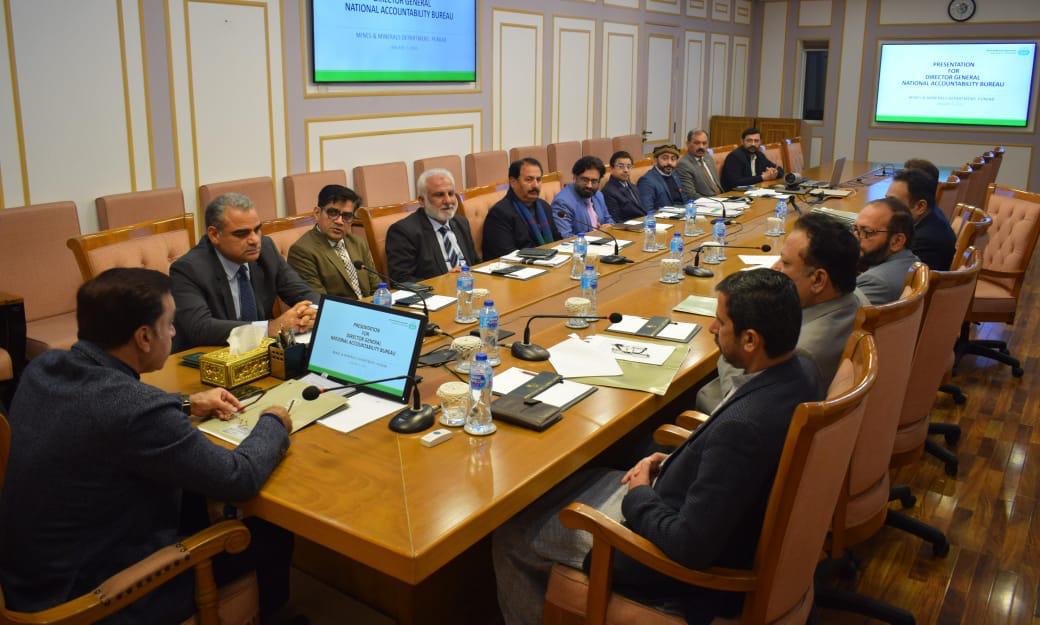National Accountability Bureau (NAB) Lahore hosted a comprehensive briefing under the chairmanship of Director General Amjad Majid Aulakh with officials of Punjab Mines and Minerals Department to review the licensing process for mining rights. The meeting, held under Section 33C of the National Accountability Ordinance (NAO), was aimed at promoting transparency, increasing state revenue and fostering mutual cooperation.
The delegation led by Secretary Mines and Minerals Punjab Pervaiz Iqbal included DG Mines Punjab Raja Mansoor and Panjman MD Zubair Kharl among other senior officials. He provided an overview of the department’s vision, operational challenges, and capacity building needs.
DG NAB Lahore emphasized the bureau’s commitment to ensure transparency in awarding mining contracts worth billions of rupees and maximizing government revenue. He highlighted NAB’s role in supporting the business community and strengthening Punjab’s Mines and Minerals Department, particularly in monitoring lucrative resources such as pink salt and iron ore.
During the briefing, department officials revealed that 56 rock salt mining contracts were awarded in Khushab, Chakwal and Mianwali between 2020 and 2022. However, some deviations from legal requirements such as investment of Rs 300 million and setting up of industries on the site — were identified. NAB proposed to revise the licensing procedure to improve revenues and facilitate legitimate business.
Secretary Mines and Minerals Punjab disclosed that iron ore reserves of 261 million tonnes have been discovered in Chiniot and Rajwa, in which a steel mill project is under study by 2027. The department contributed over Rs 14.5 billion in revenue to the provincial government last year. Additionally, mineral deposits worth around Rs 300 billion have been identified, which is expected to yield a royalty of Rs 16-17 billion. However, disputes of 7 to 8 billion rupees are still under hearing.
NAB Lahore raised important questions about revenue sharing policies in cases of significant profits or unexpected discoveries by private firms during the lease period. He also sought clarification on the procedure for revising minimum reserve prices in repeated failed bids and monitoring mining activities after contract termination.
DG NAB Lahore suggested adoption of satellite technology for real-time monitoring to prevent illegal mining and increase surveillance. The Bureau suggested involving SPARCO for direct satellite monitoring to replace traditional human-based monitoring.
The session concluded with DG NAB Lahore assuring full cooperation to improve licensing procedures and encourage private sector participation. Emphasis was placed on creating collaborative action plans to enhance revenue generation through value addition, particularly in rock salt mining.







